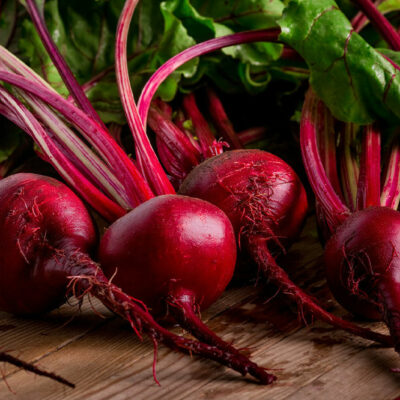Foods That Help Manage Seizures

A seizure is a sudden increase in electrical activity between brain cells. The phenomenon leads to temporary abnormalities in muscle tone or movements, sensations, behavior, or states of awareness. Seizures usually occur due to a range of health complications, including infections and tumors. The symptoms are controllable with the right prescriptions. However, maintaining a healthy meal plan alongside ongoing treatments can improve brain health and reduce potential health complications that may lead to seizures.
Spinach
Introducing spinach to daily meals is one of the best ways to improve brain health. The leafy green is abundant in an antioxidant called lutein, which helps cleanse harmful substances from the brain and prevents age-related mental decline. The vegetable is also rich in magnesium, essential for managing muscle and nerve function. Moreover, spinach is rich in B vitamins, vitamin K, vitamin E, folate, and L-tyrosine, which are known to improve memory and mental focus.
Blueberries
Each type of berry, such as blueberries, packs antioxidants and anti-inflammatory properties essential for the brain. The berry contains polyphenols, a group of compounds that include anthocyanins. While the property gives the berry its blue/black hue, it is also associated with improved brain health. Anthocyanins are said to reduce inflammation, help neurons communicate better, and regulate how the brain utilizes glucose for energy. The antioxidant may also help the body fight against age-related cognitive decline. Keeping a tab on all of these factors may help manage seizures and their symptoms.
Eggs
As far as brain health is concerned, eating egg yolks can significantly help improve its function. The yolk is a rich source of choline, a compound associated with reducing the risk of inflammation. The property may also improve brain function, such as maintaining memory and communication between brain cells. Therefore, the improved activity in brain cells can help lower the risk of seizures.
Walnuts
Walnuts are one of the healthiest sources of nuts that one should include in their meal regime for improved brain health. The food contains high amounts of antioxidants, which may help counter the effects of cognitive decline. Walnuts are also rich in brain-healthy properties like DHA – an omega-3 fatty acid that may help tackle the symptoms of inflammation. Other sources of nuts that one can include in their meal plans are almonds and pistachio nut oils. Eating a handful of nuts throughout the day can help manage the effects of seizure disorders like epilepsy.
Salmon
Omega-3 fatty acids are known to counteract the effects of epilepsy in patients. One of the healthiest sources of this property is salmon, an oily fish. The food may also work well for patients who no longer respond to prescriptions. Studies show that individuals who consumed higher quantities of salmon showed lowered signs of seizures. The omega-3 fatty acids support synaptic plasticity and subsequently improve communication of the cells within the brain. Other sources of fish like salmon that may benefit the brain include trout, tuna, herring, and mackerel.
Coconut oil
Coconut oil has grown in popularity over the years, and people use it to cook their food instead of butter and other oils. The oil contains medium-chain triglycerides (MCTs) – a type of fat that the body can convert into ketones quicker than other fats. Furthermore, ketones are one of the fuel sources for the brain, which are known to improve memory, cognitive function, and synaptic plasticity. Moreover, an individual who follows a ketogenic meal plan, such as using coconut oil for cooking, may benefit from reduced seizures due to the ketones produced during fat metabolism. The reduction of carbs and increase of healthy fats enhances ketones in the blood. So getting the ideal amount of MCTs from coconut oil may contribute to reducing seizures in people with epilepsy, especially children.
Chicken
Choline, vitamins B6 and B12 are some of the healthy properties one can benefit from eating lean meats like chicken. The compounds are said to play vital roles in promoting healthy cognition and improving neuroprotective benefits. Choline is essential to build acetylcholine – a brain chemical that boosts one’s memory center. And vitamin B12 is tasked with keeping the body’s nerves and blood cells healthy, which contributes to the creation of DNA in the body.
Avocado leaf
The bright green fruit isn’t just tasty but also one of the healthiest food sources to improve overall brain health. Studies show that high blood pressure is often linked to cognitive decline. Since unsaturated fats may help reduce blood pressure, consuming them may eventually help promote better cognition. Furthermore, the liquid extract from avocado leaves has been used as a natural treatment for childhood convulsions and epilepsy. The leaf can help improve the function of calming the neurotransmitter GABA, which may help manage the onset of seizures.
Low-fat milk
Dairy products like low-fat milk are some of the healthiest options for improved brain health. They contain calcium, which supports nerve function. Low-fat milk also contains protein, which is necessary for the growth and maintenance of all tissues in the body, including the brain. The property helps build and repair cells and also nourishes the body with amino acids needed to make neurotransmitters like serotonin and dopamine. Moreover, the liquid introduces vitamin D and potassium to the body, which may contribute to improved cognition and memory. And ensuring the brain remains healthy is one of the best ways to reduce the risk of health complications like seizures. Other dairy products like low-fat cheese and yogurt may also improve brain health.
Whole grains
Oats, barley, and quinoa are some whole grains that one must include in their meal plan. These foods are abundant in B vitamins, which reduce inflammation in the brain, and preserve one’s memory. These whole grains also contain complex carbohydrates that provide a uniform flow of energy to the brain without disrupting blood sugar levels. Therefore, intake of such foods can help prevent the onset of seizure disorders such as epilepsy.








